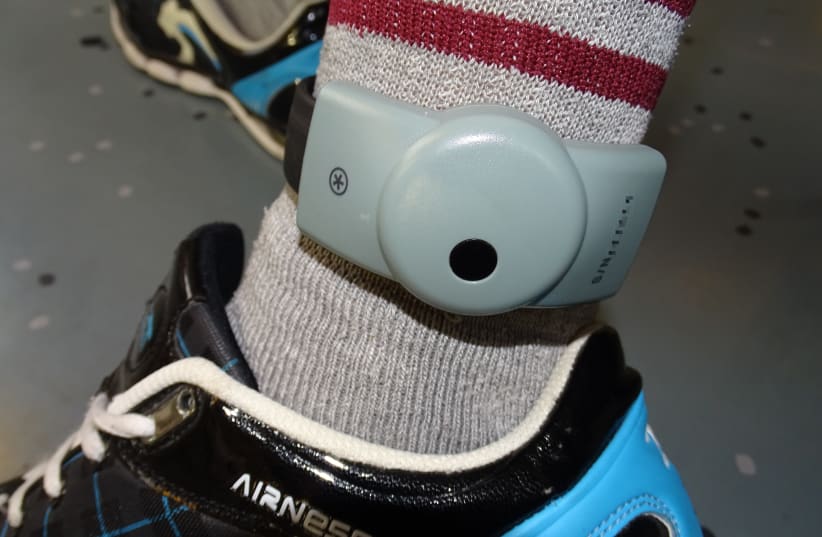Facing a surge in infection rates, Israel is looking into the option of forcing returning citizens to wear an electronic bracelet to ensure that people remain in their homes and follow the quarantine regulations, N12 reported on Friday.
This measure, usually used for convicted felons under house arrest, will be used in the following way: Israelis landing at the airport will be taken to a COVID-19 hotel, and after getting one negative COVID-19 result they will be allowed to return to their homes if they agree to wear such a bracelet, the report claimed.
Such measures are presented as the result of many Israelis refusing to quarantine themselves when they return from overseas or when informed they were in contact with a confirmed COVID-19 patient. Israeli media reported at length about confirmed COVID-19 patients attempting to reach Eilat (when that city was a Green Zone) and being turned back by police after receiving a heavy fine; Israelis, religious Jews and Muslim Arabs who held weddings despite the prohibition on large-scale events during the pandemic; and people who refused to spend 14 days in a COVID-19 hotel and confronted airport and police authority instead.While citizens of other countries pay to stay in such hotels, in Israel it is at the expense of the state. Last year, Israelis were subjected to a measure not used in other democracies, as the country's security forces were given permission to use special means to track down where Israelis are located in the country using their phones.The measure was intended to pinpoint where people with COVID-19 visited to determine with whom they came in contact. These persons, who may not have even known the sick person who stood next to them in line to the shop or sat next to them on the bus, received an SMS informing them they must remain indoors for 14 days.Many objected to being informed by a text message that they need to disrupt their lives, and media often reported that attempts to get someone over the phone to accept that a mistake had been made were not successful. The measure of having Israelis wear a tracking device is expected to fail should the state attempt to pass it and try to defend it in court.When the Knesset passed the Shin Bet surveillance law regarding phone tracking in July 2020, it declared January 20 as the expiration date of the Israel security agency's special coronavirus surveillance power.
This expiration date was put in place given that throughout the country’s history, the Shin Bet has been focused only on terror threats and almost always has been instructed to stay away from surveillance of citizens.
Given the strong opposition to permitting the Shin Bet to carry out surveillance on regular citizens, the Knesset believed it was important to make it clear that the power was temporary and only for the corona crisis.
However, the Knesset recently dissolved and the timing caught the government by surprise, such that the legislative branch did not get to the issue of extending the expiring law.
Yonah Jeremy Bob contributed to this report.
